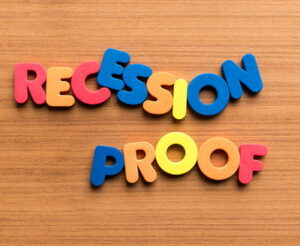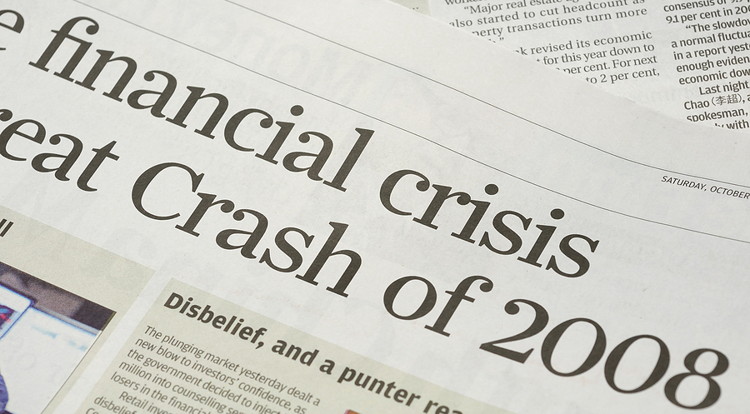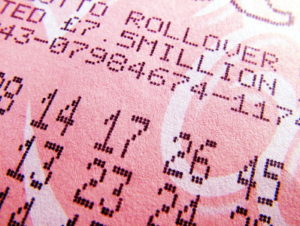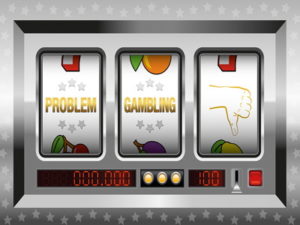Do Gambling Rates Drop When Times Are Hard?
 The world of economics is a hard one to understand. To those that don’t spend their time with their noses buried in a spreadsheet, getting your head around finances can be tough. Anyone that has ever tried to fill in a tax return will know that figuring out which numbers are supposed to go where and how much you owe at any given moment isn’t something that comes naturally to most. For that reason, many will struggle to get their heads around the idea of a recession or either economic impact on the amount of money that they have.
The world of economics is a hard one to understand. To those that don’t spend their time with their noses buried in a spreadsheet, getting your head around finances can be tough. Anyone that has ever tried to fill in a tax return will know that figuring out which numbers are supposed to go where and how much you owe at any given moment isn’t something that comes naturally to most. For that reason, many will struggle to get their heads around the idea of a recession or either economic impact on the amount of money that they have.
Why does the bank raising interest rates make a difference to how much you have in your account? How come employers seem to think that paying their staff more won’t help in a cost of living crisis? They are they sorts of questions that people might understandably ask when considering why they don’t have as much disposable income as they used to. They might have previously enjoyed placing a bet or two in their spare time, but now can’t afford to do so. The question that that raises is whether gambling spending goes up or down when times are hard.
Is Gambling Recession-Proof?
 There is a feeling from many that gambling as an industry is recession proof. It makes sense, of course. If people are struggling for money and can’t work any more hours than they already are, many might think that they can win the money that they need instead. The problem is, the only people that win from gambling in the long term are the bookmakers and the casinos. The one thing that we can say with absolute certainty is that the majority of gamblers will lose in the long-run, for that is how the system is set up to work.
There is a feeling from many that gambling as an industry is recession proof. It makes sense, of course. If people are struggling for money and can’t work any more hours than they already are, many might think that they can win the money that they need instead. The problem is, the only people that win from gambling in the long term are the bookmakers and the casinos. The one thing that we can say with absolute certainty is that the majority of gamblers will lose in the long-run, for that is how the system is set up to work.
Whether you’re talking about a bookmaker’s margin or the casino’s House Edge, the businesses of each are set up in order to ensure that they make money over a period of time. That doesn’t mean that you’ll never win a bet, but it does mean that the more often you have a wager the more likely it is that you’re going to lose your money. Of course, just because we all know that to be the case doesn’t mean that people always act sensibly and responsibly. That’s why it is felt that gambling is an industry built to survive a recession.
Casinos in the United States of America during the 1990s showed a Gross Gambling Revenue of 9.4% during a recession, even though incomes at the time decreased by 5.9%. This is a big part of the reason why it is seen as a recession proof industry, but the reality is far from different from that. In reality, people will still gamble, but they won’t invest as much money in something that is as unreliable. Gambling revenues drop when times are hard, even though they don’t fall as much as you might imagine when you consider how much people struggle during such economic hardships.
What We Can Learn From The Past

In order to get a sense of how people respond to financially tough times, we can look at what has happened historically. In recent years, 2008 to 2012 was a period of recession and economic hardship in the United Kingdom and, indeed, around the world. The question that we would like an answer to is what happed to the gambling figures during this time? Here is a look at the data from during the last major recession prior to the one brought about by the world health crisis in 2020.
| Year | GGY (£Millions) |
|---|---|
| Apr 2008 – Mar 2009 | 8,364.92 |
| Apr 2009 – Mar 2010 | 8,115.64 |
| Apr 2010 – Mar 2011 | 8,435.70 |
| Apr 2011 – Mar 2012 | 9,026.80 |
| Apr 2012 – Mar 2013 | 9,704.74 |
You can see that the Gross Gambling Yield took a slight drop as the recession began to bite, picking back up gradually as the country began to come out of the recession. What that tells us is that people definitely gamble less when they’ve got less money available to them, but not that they stop gambling altogether. In other words, the industry takes a hit on its profits, but still makes a profit.
This is confirmed in news articles at the time. As an example, Reuters produced a piece entitled ‘Bookmakers lose recession-proof edge’. The feeling was that newer forms of gambling, like online poker and gaming machines that are computerised, attract fewer ‘habitual gamblers’ than more old-fashioned betting like horse racing and wagering on the greyhounds. It was felt that the likes of Fixed Odds Betting Terminals, which were a key part of bookmaker profits at the time, offered less appeal to bettors than more traditional wagering.
What About The Lottery?
 The natural inclination of many may be to look at the National Lottery as an alternative. Buying a lottery ticket only costs a nominal amount, such as £2 for the Lotto and £2.50 for the EuroMillions, so surely lottery sales would survive the dark times of a recession? This is a trickier thing to discuss than you might imagine, largely because the cost of a ticket for the Lotto doubled in 2013, moving from £1 to £2, so it isn’t easy to see if that alone is part of the reason why sales of Lotto tickets were impacted, but it’s worth looking anyway.
The natural inclination of many may be to look at the National Lottery as an alternative. Buying a lottery ticket only costs a nominal amount, such as £2 for the Lotto and £2.50 for the EuroMillions, so surely lottery sales would survive the dark times of a recession? This is a trickier thing to discuss than you might imagine, largely because the cost of a ticket for the Lotto doubled in 2013, moving from £1 to £2, so it isn’t easy to see if that alone is part of the reason why sales of Lotto tickets were impacted, but it’s worth looking anyway.
Here is a look a the sales of Lotto tickets between 2008 – 2009 and 2019 – 2020:
| Year | Sales (£Millions) |
|---|---|
| Apr 19 – Mar 20 | 7,904.23 |
| Apr 18 – Mar 19 | 7,207.8 |
| Apr 17 – Mar 18 | 6,936.2 |
| Apr 16 – Mar 17 | 6,921.8 |
| Apr 15 – Mar 16 | 7,615.7 |
| Apr 14 – Mar 15 | 7,275.2 |
| Apr 13 – Mar 14 | 6,736.3 |
| Apr 12 – Mar 13 | 6,977.1 |
| Apr 11 – Mar 12 | 6,503.3 |
| Apr 10 – Mar 11 | 5,824.7 |
| Apr 09 – Mar 10 | 5,476.5 |
| Apr 08 – Mar 09 | 5,149.1 |
Again, you can see that sales in Lotto tickets increased gradually as the United Kingdom emerged from the recession towards the middle of 2012. This suggests that people began to feel more willing to spend their money on lottery tickets are the pressure on household bills and other items began to ease up. Is it any different when it comes to the EuroMillions? Unlike with the Lotto, where the information we were able to find ran from April to March year-on-year, the Euromillions data is yearly:
| Year | Ticket Sales |
|---|---|
| 2008 | 3,749,919,473 |
| 2009 | 4,468,201,234 |
| 2010 | 4,345,808,932 |
| 2011 | 5,958,461,966 |
| 2012 | 5,950,524,910 |
| 2013 | 5,621,097,241 |
| 2014 | 5,191,393,236 |
| 2015 | 4,295,430,211 |
| 2016 | 4,697,580,993 |
| 2017 | 5,114,220,119 |
| 2018 | 4,989,487,402 |
| 2019 | 5,404,743,697 |
As you can see, the sales of EuroMillions tickets have remained mainly the same over the years, never dipping below £4 billion. Still, there was a definite drop-off in 2008, 2009 and 2010 when compared to 2011 and 2012, perhaps suggesting that people were being a little bit tighter with their money during that time. The cost the play moved from £1.50 to £2 in November 2009, increasing again to £2.50 in September of 2016. The initial increase might have had a small impact on ticket sales, but it didn’t in in 2016 with the sales increasing the following year.
Responsible Gambling Dips, Irresponsible Doesn’t
 What the stats appear to show is that, during times of economic uncertainty, people that tend to be responsible with their gambling do it less often. Those that are more irresponsible with their betting habits, however, continue to be so even during times of crisis. This makes sense, of course, given that people that are not responsible with their gambling tend not to be able to limit themselves, placing bets even when they have gone into extreme levels of debt. The notion that they would stop even when in the midst of a financial perilous situation is somewhat fanciful.
What the stats appear to show is that, during times of economic uncertainty, people that tend to be responsible with their gambling do it less often. Those that are more irresponsible with their betting habits, however, continue to be so even during times of crisis. This makes sense, of course, given that people that are not responsible with their gambling tend not to be able to limit themselves, placing bets even when they have gone into extreme levels of debt. The notion that they would stop even when in the midst of a financial perilous situation is somewhat fanciful.
To many, responsible gambling means a different thing than it will to someone else. The solid rule of thumb, though, is that if you gamble responsibly then you only ever place bets with what you can afford to lose. This is often thought of as being disposable income, given that you are, almost literally, disposing of it when you place a bet that you’re statistically more likely to lose than to win. It is betting with money that you have left over after you’ve paid all of your necessary outgoings, such as rent and bills.
During financially difficult times, people tend to look for another way to gain financial relief. Casinos and bookmakers put forward offers that many will therefore consider, seeing odds such as 7/1 for one football team to beat another as reasonable, even when they’re not. During hard times, such as a recession, people will often turn to gambling in order to supplement an income that might not be enough to stretch to cover their bills. This isn’t the solution, but if you are a problem gambler then you’re always going to struggle to see that.



